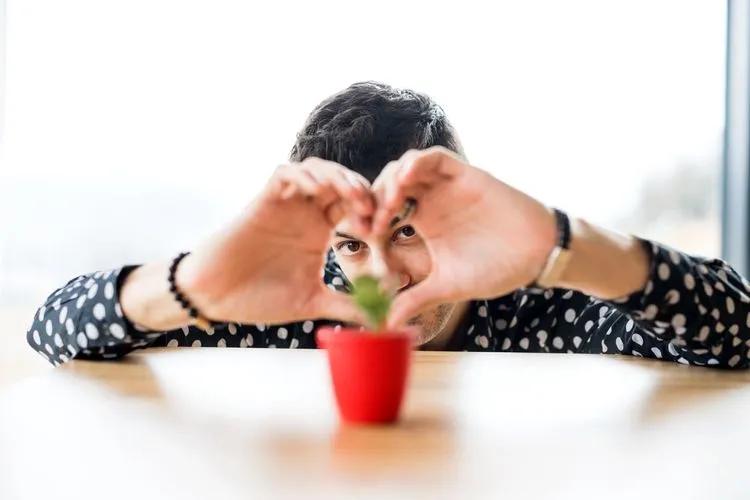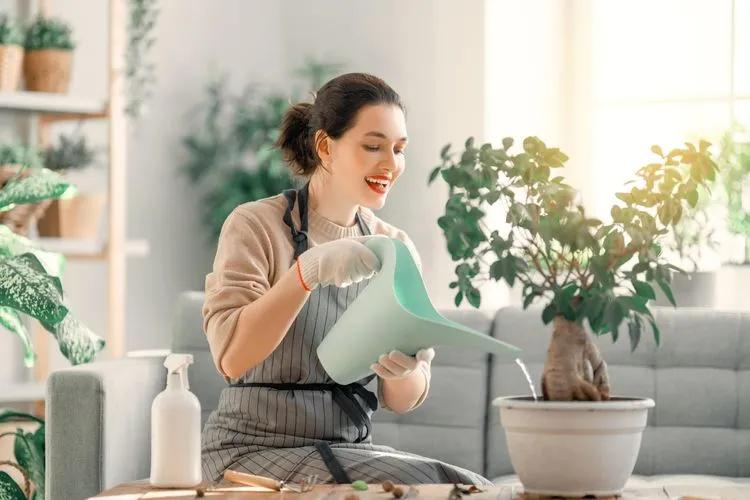Have you ever seen jokes that plants are probably the only living creature that millennials can keep alive? And it’s not even the main reason why this generation is so devoted to plants that much that they call themselves plant parents. According to one of the recent researches, 7 in 10 millennials consider themselves pant parents and have at least several plants at home - let's discover why.
Need to Nurture

As humans, we want to care about other living beings, such as children or pets. But compared to previous generations, millennials are reluctant to have babies very soon. It can be due to financial circumstances or personal reasons. But one thing is for sure they want to connect to something. Pet adoption can be problematic if you live in a rented apartment or you are a busy bee who is rarely at home. Things are different with plants. Owning them is like commitment without much responsibility. But still, it’s a liability that can be almost like parenting. Seeing your green pet growing and blooming is such a rewarding experience.
Aesthetic Purpose
According to the same research, 50% of respondents say that plants complement their home décor, and 39% think that they make their spaces look prettier. For sure, plants can help you with interior decoration. Even more, they can give your apartment a personality. Particular plants can create a special mood and make your room look slightly different. Everyone wants to make their home look more beautiful and comfortable. Millennials are not unique in this desire, but it is the generation that rebranded gardening, making it more aesthetically appealing and easier available to those who live in city apartments. As for aesthetic factor, social media helped with that.
Trendiness

47% of Millenials think that plants are trendy. And it happened with significant social media influence. This generation is known for its obsession with social media: we see pics of gorgeous plants in our feed almost daily, and somehow it affects us. Do you remember the succulent fever? It wouldn’t be possible without Tumblr and Instagram. Plant-related content can be a massive jolt to buy a plant. And since Millenials are highly online, they can’t resist it.
Sense of Community
Surprisingly, plants are an excellent topic for small talk or even friendship. Social media helps to find the community if you are really into something. You can check Instagram accounts like House Plant Club or Junglow with more than 1 million followers each. Also, you can visit different plant workshops or swaps offline. You can find out something new or exchange plants, and also - get acquainted with many people. There’s even a big chance to find friends, just because both of you share the same passion for plants. It’s the millennial version of the situation when parents befriend each other because their kids play together.
Passion for Health
According to Sandford Health, millennials are the ‘wellness generation.’ It means that they are more focused on their health than boomers and generation X. That’s why they want to surround themselves with something healthy. Plants are the obvious choice for that. And for a reason. 81% of millennials say that plants positively affect their physical and mental health. Surprisingly, the air isn’t the only thing that plants can improve. Our concentration and productivity are also enhanced. Plants can even deal with anxiety! This is important for Millennials, who are known for being very anxious.
Maybe There’s Something Deeper Behind It

It won’t be dramatic to say that our planet isn’t in good condition. Ecological catastrophes are one of the reasons why millennials don’t want to have kids. But Erin Moreno, director of brand marketing in The Sill, doesn’t think plants are just a substitute for kids. And we agree because it can be a desire to have something stable in your home when the whole world is unstable. So gardening can be a powerful tool to create a safe and calm space. No doubt, when plants in your apartment are thriving, you will feel better.
For sure, plants can fill the void, which can be parental, decorative, and even existential. We hope this article helped you to understand this phenomenon better. Maybe, you even found why you consider yourself a plant parent, even if you are not a millennial.
FAQ
Why Are Millennials Increasingly Adopting Plants?
Millennials are turning to plants because they’re easy to care for, brighten up apartments, and help reduce stress. Beyond décor, plants give a sense of purpose and connection, and social media trends make them fun to collect and share with friends.
